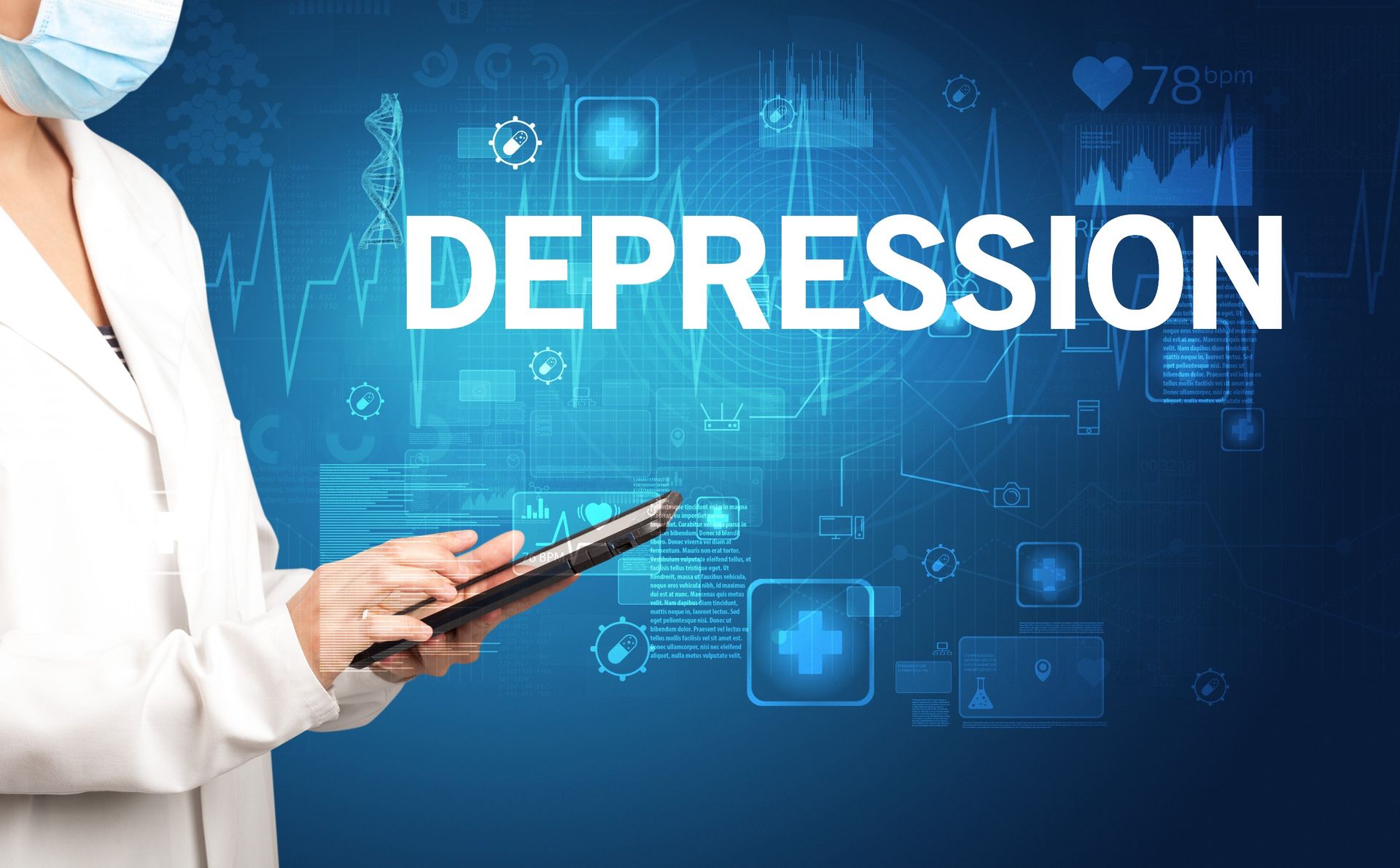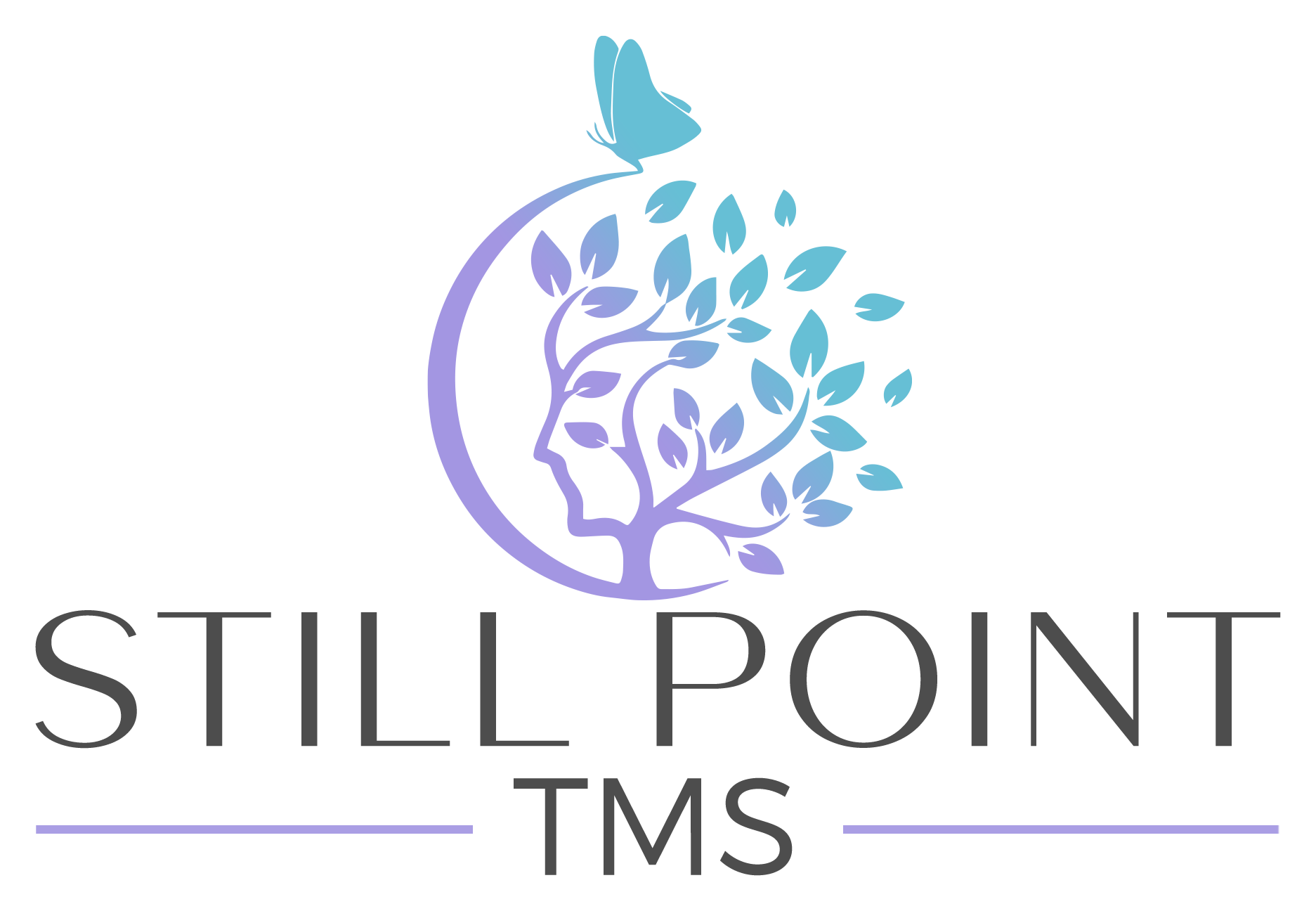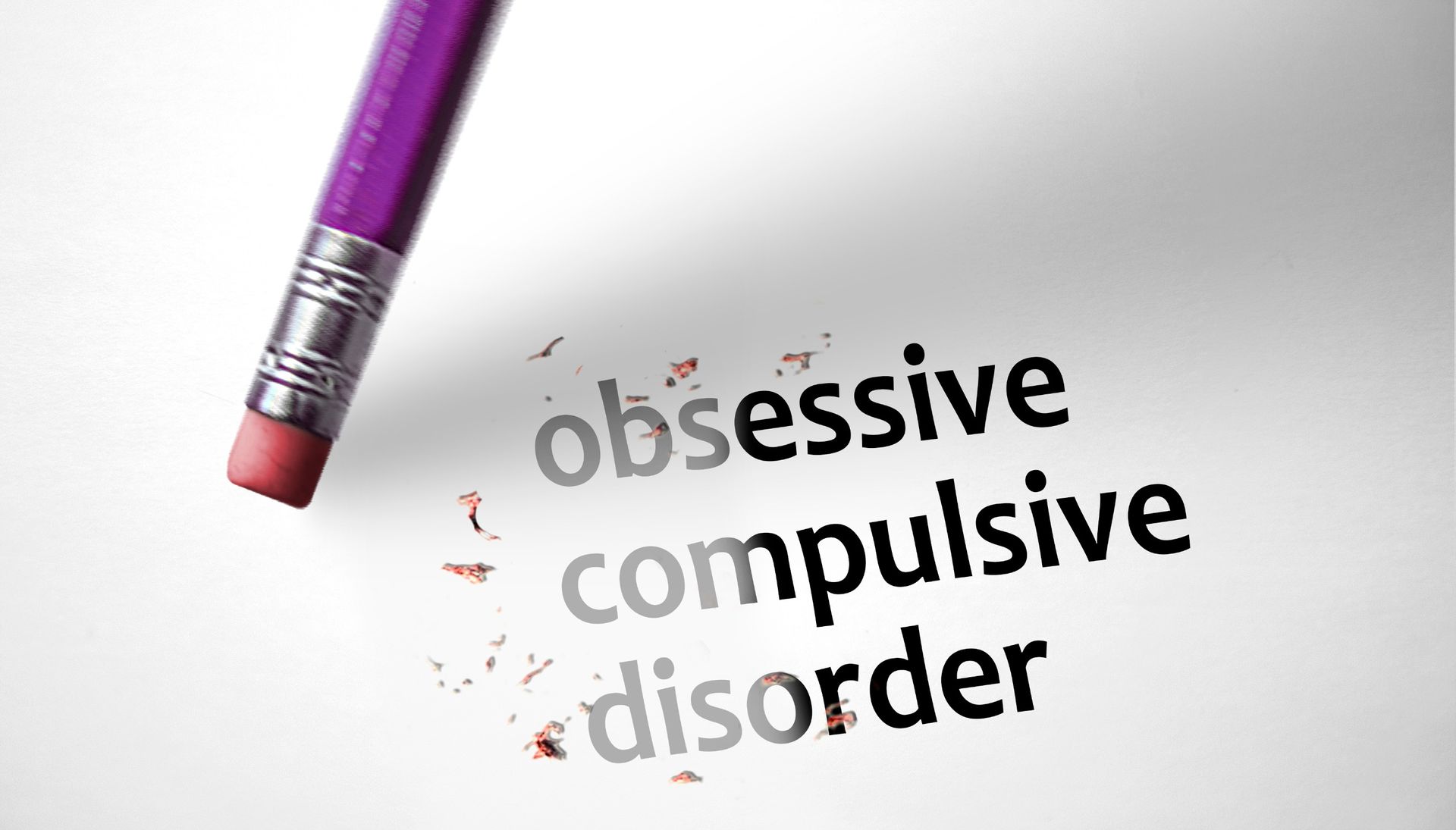103 Pennsylvania S, Charleston, WV 25302
103 Pennsylvania S, Charleston, WV 25302
Understanding Major Depressive Disorder (MDD) and Exploring Effective Treatments
Michelle Bez • Dec 18, 2023
Major Depressive Disorder (MDD) is a serious mental health condition that can greatly diminish an individual’s quality of life if left untreated. Studies have shown that MDD impacts people from all walks of life, with prevalence rates increasing among the general population in recent years.
While there are many theories as to why this might be happening, it has become increasingly important for individuals and healthcare providers alike to understand what MDD is and the different treatments available when seeking help for their issues.
In this blog post, we will explore in detail what MDD is, its associated symptoms and signs, as well as a range of treatments being employed by therapists today that can effectively aid patients suffering from depression.
What is Major Depressive Disorder (MDD)?
Major Depressive Disorder (MDD), commonly known as depression, is a mental health disorder characterized by persistent feelings of sadness, loss of interest in daily activities, and a pervasive sense of hopelessness.
These symptoms go beyond what might be expected from normal life experiences. An individual with MDD finds it challenging to function effectively in their daily life, affecting both personal and professional relationships.
The disorder can also manifest physically, causing changes in appetite, sleep patterns, and energy levels. It's imperative to remember that MDD is not a sign of personal weakness or a condition that can be willed away; it's a serious health condition that requires medical and therapeutic intervention.
Symptoms of MDD and How to Spot Them
MDD symptoms can vary greatly among individuals. However, as per NIMH, there are common signs that often manifest and these may include persistent feelings of sadness, hopelessness, or emptiness, excessive guilt or feelings of worthlessness, and a loss of interest or pleasure in once enjoyable activities.
It could extend to hobbies, social activities, or even sex. People with MDD may also experience changes in appetite, leading to significant weight loss or gain, and they may suffer from sleep disturbances, such as
insomnia or hypersomnia.
Other symptoms can include fatigue or loss of energy, difficulty thinking or concentrating, and recurrent thoughts of death or suicide. Physical symptoms may also manifest, such as headaches, digestive problems, and general aches and pains. If you or a loved one exhibits several of these symptoms for two weeks or more, it's crucial to seek help from a mental health professional.
It is not a comprehensive list and symptoms can vary; therefore, any concerns about mental wellbeing should be addressed with a professional.
The Causes of Major Depressive Disorder (MDD)
The exact causes of Major Depressive Disorder (MDD) are not fully understood, but it is believed to be a complex interplay of genetic, biological, environmental, and psychological factors.
Genetically, individuals with a family history of depression are more likely to develop the disorder, indicating a possible genetic predisposition. Biologically, changes in the brain's neurotransmitter levels, particularly serotonin, norepinephrine, and dopamine, have been linked to MDD. Additionally, hormonal imbalances, especially those related to the thyroid or during stages like pregnancy and menopause, can trigger MDD.
Environmental factors such as chronic stress, trauma, or significant life changes like the death of a loved one, a divorce, or losing a job, can also contribute to the onset of MDD. Substance abuse is another risk factor.
Psychologically, individuals with certain personality traits, such as low self-esteem, excessive dependence on others, or a pessimistic worldview, are more prone to developing MDD.
It's important to stress that these factors don't work in isolation but interact in unique ways for each individual, which makes the understanding and treatment of MDD challenging and necessitates a personalized approach.
Treatment Options for Major Depressive Disorder (MDD)
The treatment of Major Depressive Disorder (MDD) is generally multimodal, involving a combination of psychological therapies, medication, and sometimes, more intensive interventions. The choice of treatment depends on the severity of the symptoms, the individual's personal preferences, and their overall health status.
Cognitive Behavioral Therapy (CBT)
Cognitive Behavioral Therapy (CBT) is a form of psychological treatment that has been demonstrated to be effective for a range of problems including depression. The basic premise of CBT is that our thoughts and perceptions influence our behaviors and feelings.
In the context of MDD, CBT helps patients learn to identify and change thought patterns that lead to harmful behaviors or feelings of sadness.
Medication
Antidepressants are the most commonly used medications for MDD. They work by affecting the chemicals in your brain called neurotransmitters that are involved in mood regulation. Selective serotonin reuptake inhibitors (SSRIs) and serotonin and norepinephrine reuptake inhibitors (SNRIs) are among the types of antidepressants commonly used.
However, it is important to remember that these medications must be taken under the supervision of a healthcare provider due to their potential side effects and the risk of withdrawal symptoms upon discontinuation.
Electroconvulsive Therapy (ECT)
In severe cases, or when other treatments have been ineffective, Electroconvulsive Therapy (ECT) may be considered. ECT involves passing a controlled electric current through the brain while the patient is under general anesthesia.
Despite the stigma often associated with this treatment, it is safe and can be highly effective for individuals with severe MDD.
Transcranial Magnetic Stimulation (TMS)
Transcranial Magnetic Stimulation (TMS) is a newer form of brain stimulation that uses magnetic fields to stimulate nerve cells in the brain, improving symptoms of depression. It is typically used when other treatments for depression haven't been effective.
It is important to note that these treatments are not mutually exclusive and can often be used in conjunction with each other to achieve the best outcome. Further, treatment plans should be individualized according to patient needs and should be reviewed frequently to assess efficacy and manage side effects. Always discuss potential treatments thoroughly with your healthcare provider.
Tips For Finding the Right Treatment Plan for You
Finding the right treatment plan for Major Depressive Disorder (MDD) can seem daunting, but it's crucial to remember that everyone's journey to recovery is unique and what works for one person may not work for another. Here are some tips to help you navigate this process:
1. Take our PHQ-9 assessment: The Patient Health Questionnaire (PHQ-9) is a clinically validated screening tool that can help you and your healthcare provider understand the severity of your depression and monitor it over time. The PHQ-9 questionnaire is a self-administered version of the primary care evaluation of mental disorders (PRIME-MD) diagnostic instrument for common mental disorders.
Remember, the PHQ-9 is not a diagnostic tool, but a starting point for a conversation with your healthcare provider. Always consult a mental health professional for a comprehensive evaluation.
2. Seek professional help: If you suspect that you or a loved one may be struggling with MDD, it's crucial to reach out to a mental health professional. They can help you navigate the complexities of this disorder and provide personalized treatment recommendations.
3. Be open and honest: It's essential to be open and honest about your symptoms, feelings, and experiences. It will enable your healthcare provider to make a more accurate diagnosis and develop a more effective treatment plan.
4. Consider your preferences: While your healthcare provider's recommendation is important, it's also crucial to consider your preferences and comfort. If you feel uncomfortable with a particular treatment option, discuss this with your provider.
5. Give treatments time to work: It's important to remember that most treatments, especially medications, require some time to work. Don't be discouraged if you don't see immediate progress.
6. Consider lifestyle changes: Treatment for MDD often includes lifestyle changes, such as regular exercise, a healthy diet, enough sleep, and reducing alcohol and caffeine consumption. Incorporating these changes into your life can enhance the effectiveness of other treatments.
7. Don't give up: Finding the right treatment can take time, and it's not uncommon to try several options before finding what works best for you. If a treatment isn't working or the side effects are too severe, speak with your healthcare provider about trying a different approach. Remember, it's a process and there's always hope.
Wrapping Up!
MDD is a serious, yet manageable mental disorder that can be successfully treated with cognitive behavioral therapy, medications, or other options. Understanding the causes and symptoms of MDD will help you make an informed treatment decision.
It's important to find a care team that truly understands your needs and develops an individualized treatment plan tailored to those needs. Seek professional help today if you or anyone you know may be struggling with MDD.
About Still Point TMS
Our mental health professionals will help you every step of the way on your mental fitness journey by creating a treatment plan. We understand that it is a challenging situation but you have already taken the first step by being here. Don’t wait any longer, request a free consultation today! You can reach us at 304-915-0084 to learn more or schedule your appointment.

Schedule a Consultation
Local to Charleston West Virginia and need help with depression? Contact Still Point TMS today!
Call Now: 304-915-0084

TMS Therapy Can Help People With
- Depression
- Lack of Joy
- Sadness and Despair
- Low Mood
- Lethargy
- Insomnia
- Oversleeping
- Social Isolation
- Self-Harm
- Substance Abuse
- Suicidal Ideation
- Alcoholism


Ready to Get Started?
Holistic Anxiety Disorder Treatment & Mental Health Services in Charleston, WV
Our commitment is to enhance the mental health of our community and we pledge to support you in your journey by providing a customized treatment plan to help you overcome your struggles and achieve a fulfilling life. At Still Point TMS, our mental health clinic in Charleston West Virginia, we utilize TMS therapy, an exceptional and innovative method to combat treatment-resistant depression. We're dedicated to helping you find the mental well-being you deserve. It’s time.
Or Call: 304-756-5715 for Bez Psychiatric
🙌 Bez Psychiatric Is Now Part of Still Point TMS Therapy 🎉
Navigation
Contact
Or Call: 304-756-5715 for Bez Psychiatric
304-346-9927
MON – FRI: 9am-4pm
SAT – SUN: Closed
103 Pennsylvania S, Charleston, WV 25302







